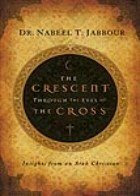
I am usually nervous to post when I am reading a book by Hirsi Ali (I just finished her latest memoir,
Nomad). Yet I can see the great irony of my fear to speak out when that is one of the things I admire most about her. Truth be told, she has profoundly influenced my love for Muslim women. When I read her first memoir,
Infidel, in 2007, it broke my heart with a heavy compassion for women world-wide, as- to me- she was a snapshot, a single portrait of a reality lived out by millions of women. (Let me clarify, though, that I fully recognize her story is
one story and I do not pretend to apply it to every Muslim woman in the world.)
Hirsi Ali is fiercely vilified by many, and she certainly causes much controversy over her stated opinions. But her message is so important to voice, at the very least, because it is not the majority point of view. We live in a land where diverse thought can be debated. Freedom of speech is a treasured gem. Yet that means we have to endure people we fundamentally disagree with just the same as we have the right to passionately agree with others. I am grateful for Hirsi Ali because of some of the things she says. But I am also plain grateful for her
because she says them.
My nervousness to post about her usually reflects the
greater desire I have within me to demonstrate LOVE for Muslims living in this country. I believe, as a follower of Jesus, that Christ cares for all people. Jesus loved poor people & rich people. He loved women & men. He loved children. He cared about sick people, people in prison, people who were oppressed or outcast. Jesus had a heart for people who were "strangers in a foreign land" or were a persecuted minority. And because I want to imitate Jesus, I want to love all those people too. Within me, Jesus compels me to care about what & who He cares about. And so, I love Muslims living in this country. In the deepest parts of my heart, I literally ache with an affection for them that only Christ could instill within me.
Which I hope explains why I hesitate to tell my readers things like: I read Hirsi Ali's book. But the truth is I did. And it makes me love Muslims even more. She does not make me afraid of them. She does not convince me that all Muslim's have evil motives (in fact, I don't think even she believes that). She does, however, move me. She causes me to think, she spurs me to question, she entices me to evaluate. She paints a vivid picture of
real people she has met,
real situations they've experienced. Often those stories are painful or feel extreme... but they are
real to those involved. And I share in their pain as I read about them.
I haven't been convinced (as she is) to reject God and embrace atheism (which was at one point in my past my "religious" allegiance too). But I have been convinced (and not solely through her arguments) to fight women's oppression both here in the U.S. and abroad. I don't want to live in a world where some of the modern travesties against girls exist. I want to speak up and say "enough!" Even Hirsi Ali doesn't try to argue that the Muslim World has a monopoly on the perpetration of these crimes against women. So I stand in solidarity with her in my opinion that women the world over are neglected, abused, or under-valued.

I am drawn to read Hirsi Ali's books because of her experience as a woman, her experience as a refugee, her experience as a thinker, and her experience as a participant in both Eastern & Western worldviews. She has a unique insight into a large portion of the issues facing modern society. To listen to her reason & grapple with reality is fascinating. I stand by that. To read Hirsi Ali's book is to engage in thought-provoking discussion over today's powerful social dichotomies.
To Ayaan, thank you for your bravery, my literary friend. You inspire me, challenge me, and encourage me to engage even further in loving those who are forgotten, overlooked, abused, oppressed, discounted, and unloved...

























